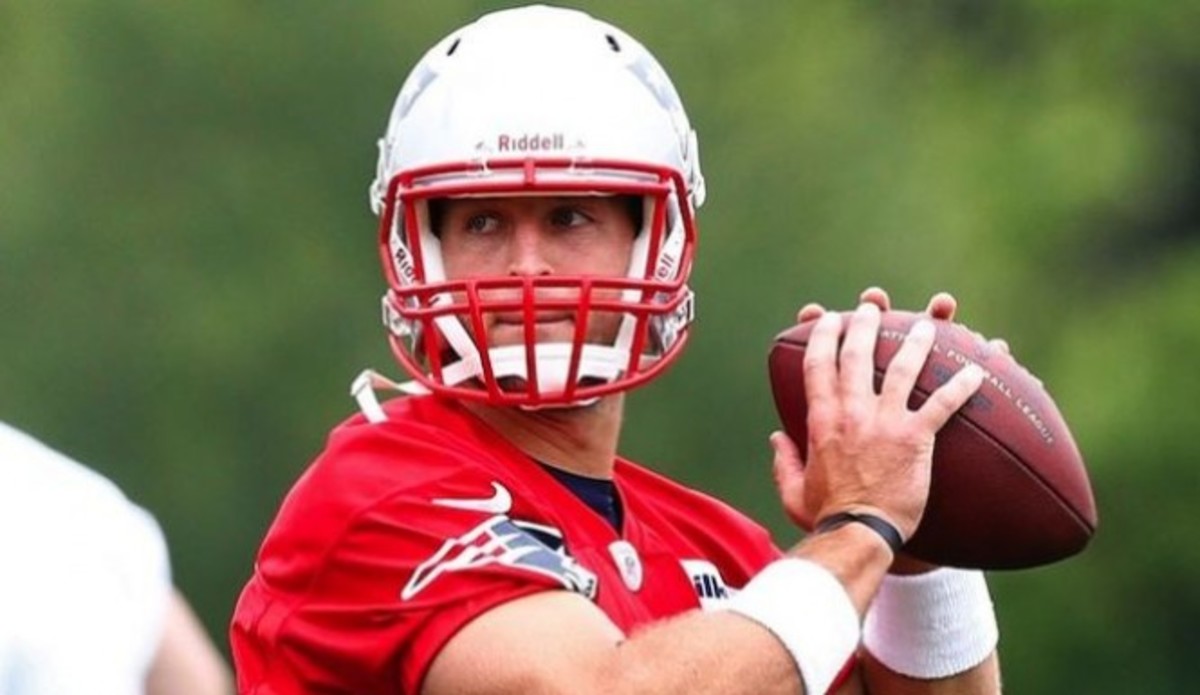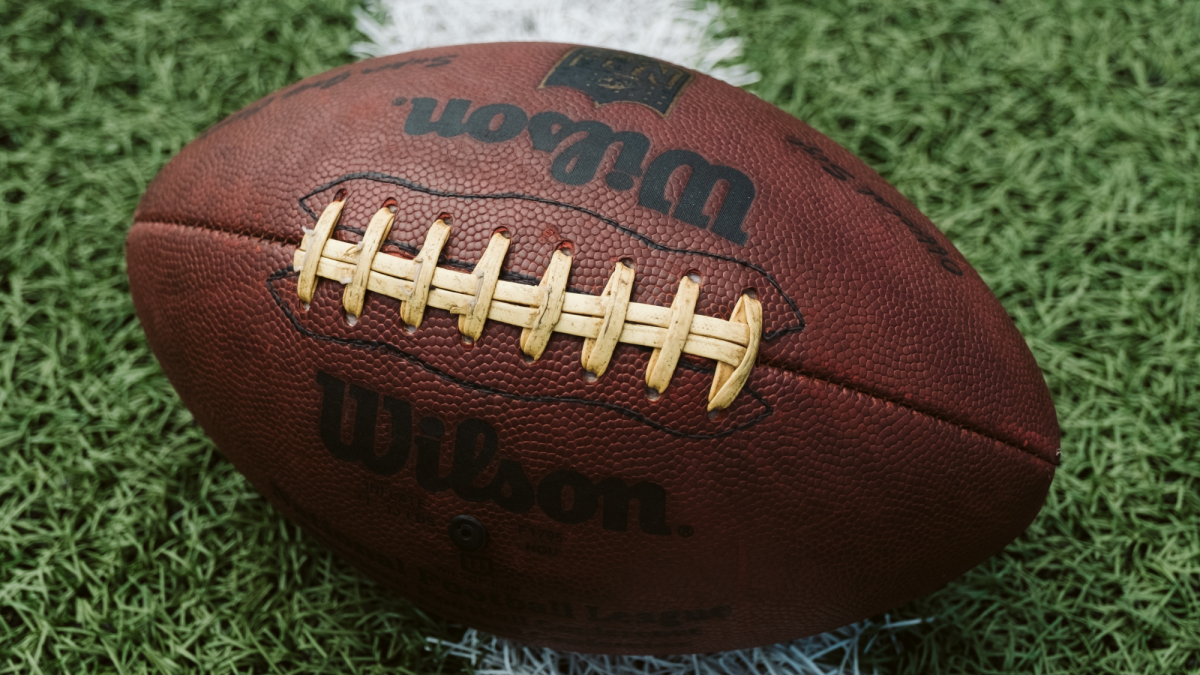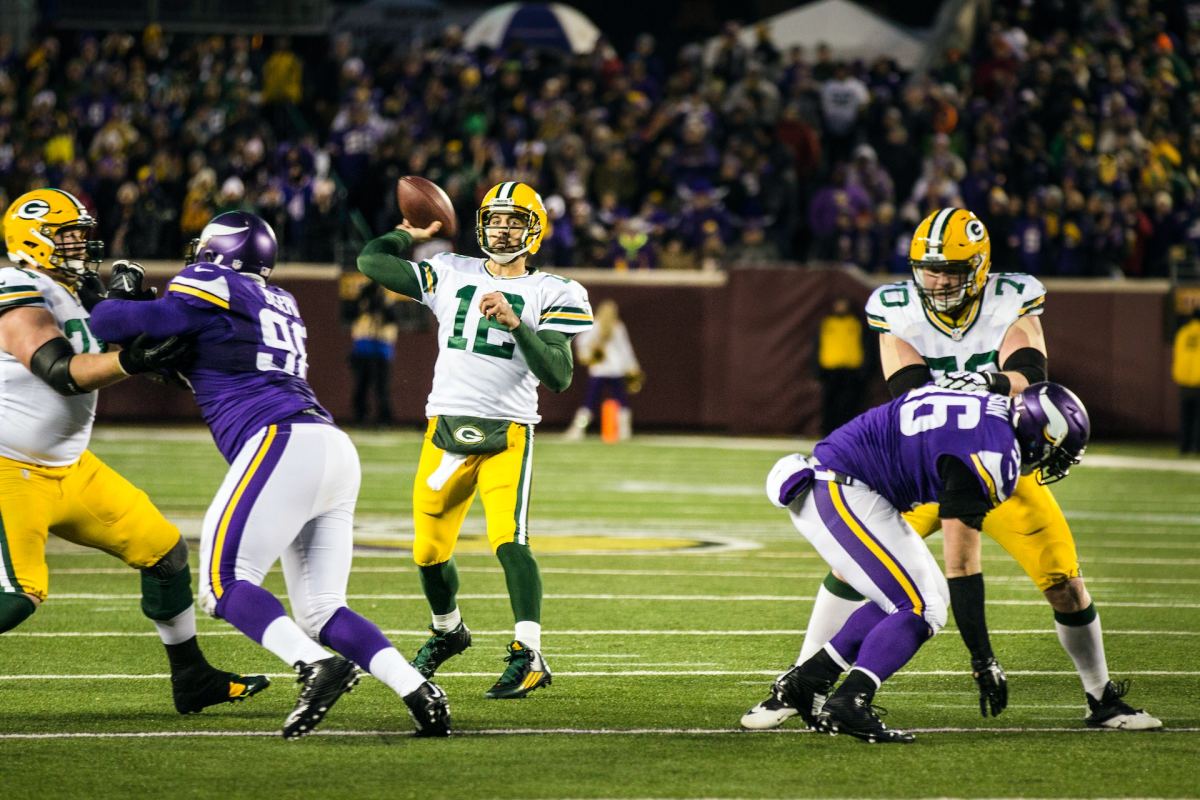- HubPages»
- Sports and Recreation»
- Team Sports»
- American Football
Patriots Way - In Bill We Trust
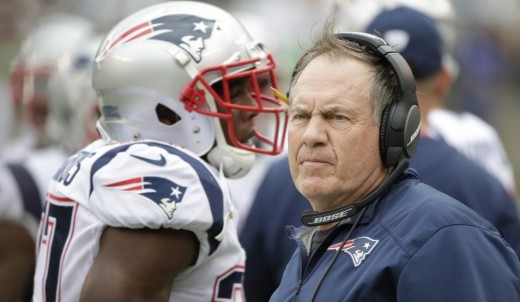
As so often happens, throughout all venues of life, we often build up our heroes only to tear them down.
As sure as 'the sun rises in the east', the Patriots' consistent drive for excellence that has lasted almost two decades (an unheard of amount of time of the NFL) will come to an end. The seemingly endless compilation of season after season of having a winning record (more wins than losses) will eventually be over.
Bill Belichick has survived more miscues and mole-hill mishaps than most Head Coaches ever could, for certain a large part of the reason for that is his seven Super Bowl appearances in the past seventeen years. The multiple rings and playoff appearances built a vault full of trust and goodwill for the team, and especially, the man who is viewed as the architect and the genius of a dynasty.
And that perception is well deserved, for if not for his steadfast belief in his own system as well as his own evaluation of players, the Patriots would not be what they are or have accomplished what they did.
Belichick could look at a player thought too ordinary by every other NFL front office and see a future All-Pro. He could watch a player viewed as a borderline NFL talent by the experts and see the next Joe Montana. He could design a defensive scheme that could disrupt even the most powerful opposing offense, and then get his players to buy into it.
Of course none of that last paragraph is really 100% accurate, and that is the rub of becoming a icon, a hero, a legend... you are never as great as people build you up to be, and you are never at fault for the inevitable fall from grace as much as detractors claim, either.
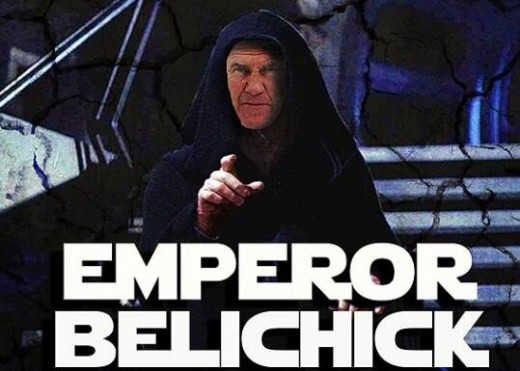
Bill Belichick sets the tone of who the Patriots are and seeks like-minded players who share those core values. He values team chemistry, and how players will fit into his system, over individual talent, he puts a premium on flexibility, the more positions a player is capable of filling, the more valuable they are to the team. He tries to weed out those prospects who don't seem to 'fit the mold' prior to the draft, with varying degrees of success.
But Belichick is not at all infallible when it comes to personnel decisions, scouting, or veteran pick-ups. Despite being labeled a genius at these efforts as well, the truth is he is middle of the road when it comes to making draft selections and trades for players.
For every Randy Moss, there is an Ocho (Chad Johnson). For every Rob Gronkowski, there is a Ron Brace. For every moment of utter brilliance (taking a safety in a Denver game, so they could be in a position to win the game after the fact) there have been miscalculations (calling a play on 4th and 2, short of their own 30 yard line) as seen in the video below.
In Bill we trust.
Mid-season Acquisitions.
During the 2014 season, in route to another Super Bowl appearance, Bill Belichick acquired Akeem Ayers for a box of crayons from the Titans, their former second round pick that in 2012 had 104 tackles and 6 sacks. A minor gamble in that he was coming off a serious injury, but this was the same type of gamble Bill had taken drafting the likes of Rob Gronkowski in the draft, but how many GMs find themselves key contributors year after year, when in the middle of the season?
He was able to bring in Aqib Talib mid-season from the Tampa Bay Bucs in 2012, admittedly he was coming off a 4 game suspension so there was risk in that trade as well. But how many GMs bring in an all-pro talent (suspension or not) mid-season from another team?
Not all of them work out as good as the examples above, one mid-season acquisition was Isaac Sopoaga, who contributed all of about one decent game and then disappeared never to be heard from in a Patriots' uniform again.
Still, one has to give Belichick credit where it's due, he's been pretty consistent finding those one or two players that come in and make an impact long after the season has begun, year in and year out.
Bill Belichick's father, Steve Belichick, revolutionized the scouting process
Steve Belichick, was a college football coach and celebrated scout for 43 years. The elder Belichick was an assistant coach for 10 years at Vanderbilt and North Carolina, and then for 33 years at Navy.
"He was a genius," Joe Bellino, Navy's Heisman Trophy winner in 1960, told The New York Times in August 2004. "On Monday nights, he would give us his scouting reports, and even though we were playing powerhouses, I always felt we were prepared because he found a way for us to win."
In 1963, Steve Belichick wrote the book, "Football Scouting Methods," which former Redskins and Texans General Manager Charley Casserly called the best book on scouting he had ever read.
Belichick considered his father Steve to be his one constant mentor, with his dad allowing him read through the scouting reports as early as age 9.
Steve and Bill
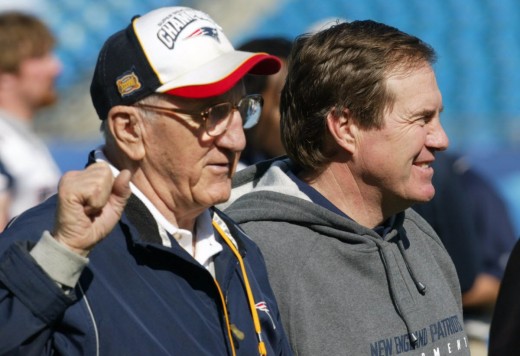
Bill Belichick's friend, Jimmy Johnson, revolutionized the draft process
In 1989, then Dallas Cowboys head coach Jimmy Johnson revolutionized the NFL Draft, when Johnson created the trade value chart. Though trading draft picks (and players) had been around since the very first draft in 1936, there had never been such a way of quantifying what each of those picks were worth. And there had never been a HC who parlayed picks and players in such dramatic fashion. JJ built a championship team through the draft, winning a couple Super Bowls with them, he was pretty good at what he did in his day.
Today all teams use a similar chart to make sure they're getting fair value when swapping picks. No one does this better than Belichick. Bill meets with Jimmy Johnson every year during what has become his annual scouting visit to Florida. Its hard to imagine he hasn't garnered some insight from this relationship.
Bill and Jimmy
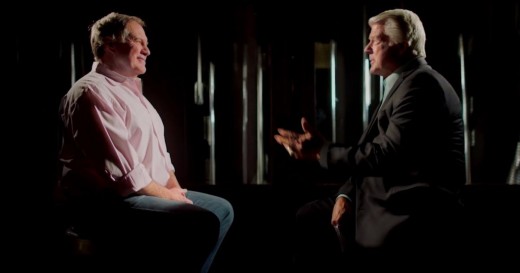
Bill Belichick and Mike Lombardi, created their own process
While running the Cleveland Browns, Bill Belichick and player personnel director, Mike Lombardi, conceived the idea of devising a uniform method of grading and evaluating draft-eligible athletes. When Belichick took over the Patriots in 2000, he developed that idea into a system. Lombardi even joined the team for a year in 2014 as an assistant to the coaching staff, likely aiding in a similar fashion.
"I think [Lombardi is] excellent," Belichick said. "He's thorough, he's smart, he understands football. He understands not just personnel, but schemes and how certain players fit into certain schemes better than others because of the responsibilities in those schemes; the type of plays or the type of system that coaches run.
"There are obviously a lot of different coaches in this league, different coaches in college, so that affects the performance of the players -- some good, some bad, depending on how they fit into that particular system. I think he has a very good understanding of that, which is important for personnel people to understand, just like it is for coaches to understand personnel."
Many years ago Lombardi was exposed to, and worked with, Bill Walsh during draft preparation. Bill Walsh in turn, had a perspective on the NFL draft, built on his time spent with Paul Brown, when he was one of his assistants.
Walsh was ahead of his peers, not just in Xs and Os and scheming up the West Coast offense, he was equally a great executive/gm. Walsh knew what his team needed before each draft to compete every season for a championship.
"Walsh always said it never matters where we pick them, it only matters how they play." Lombardi said, "'This is a bad draft.' This statement drove Walsh nuts, as he felt it was a huge copout by scouts. Walsh would remind everyone in the room that the draft only needed enough depth for his team to acquire 12 good players. Satisfying every team was not his concern. All he cared about was finding talent for his own team. Therefore, the depth of talent in each draft was irrelevant."
In short, Bill Belichick has been exposed to the best football scouting and team-building minds to come along in the last half-century, either directly or through association.
Trends in the NFL
Fifteen years ago it was common for some teams to run on offense 30 or more times a game, every game. Now a team could go half a season or more without handing it off that many times in a game.
A decade ago having top tier DTs to be able to stuff the run and occupy multiple blockers so that gaps could be created for the linebackers to attack through was a major priority and key to the success of a great Defense.
Now things have shifted towards the Secondary, and having the ability to match up in the passing game. Former VP of player personnel for the Patriots, Scott Pioli, had this to say about that a few years back:
"So the third corner is a starter in today’s game," Pioli said. "We were talking about guys who were third corners and weren’t given high-enough grades.
"It’s not anything that’s genius. It’s just trying to look at today’s league and understanding matching value versus just saying, ‘He’s a starting running back.’ "
Pioli is of course right. In fact, with offenses throwing the ball more than ever before, and rules making it near impossible to touch a WR, one could even go so far as to say a fourth starting caliber CB can potentially be more valuable than a run-stuffing defensive tackle.
Similarly, linebackers that can drop into coverage and cover an athletic TE might be of more worth than a block-eating monster, as more and more teams try to emphasize the two TE set.
I would think the last few Super Bowls stand as testament to the value of a strong, and deep Secondary. In the 2014 Super Bowl how different might things have been, if Jeremy Lane hadn't been replaced by Tharold Simon who was constantly targeted (giving up two touchdowns) by Brady?
How fortunate were the Patriots that they had rookie undrafted free agent Malcolm Butler to fall back on in that game, after it became evident that Kyle Arrington was not up to the challenge in that game?
Understanding the trends of the NFL, and being one step ahead of them, or being the one setting them, has always been a Bill Belichick strength.
How does one measure Success?
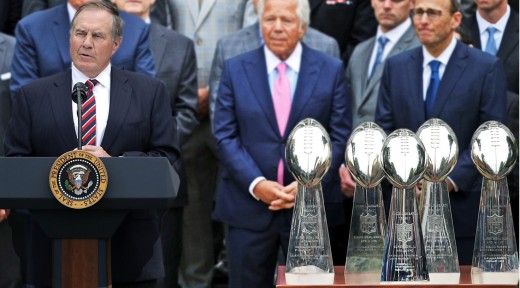
Scouting his own Team
Evaluating the potential of prospects is one thing. Scouting one's own team is another.
Another aspect to preparing for the draft is evaluating the players on the team. Belichick has mentioned in the past that he goes over every game from the past season, and reviews how the players performed.
Belichick is always scouting and evaluating his own players. This has been evidenced time and again, when they release, or let walk off in FA, players we fans feel are icons of the team still in their prime.
Prospect evaluation process, is it really rocket science?
Evaluating the potential of prospects, is a process of evaluating what a player was asked to do, what type of system was employed, the level of competition the player competed against, how that may translate into the pros, and so on.
Belichick likes to use complex strategies so he needs intelligent players that have commitment and a strong work ethic. Players don’t get better in games, they get better through the repetition of practice, and sound study habits.
The players have to have a passion for practicing, and a dedication to better themselves through film study, or they won't be successful long term Patriots' players.
When scouting reports on players, have references like the following:
"Lacks consistent motor, disappears in games"
"relies on athletic ability and is undisciplined"
"problematic player that doesn't take well to regimin, immature"
Those are the types of 'flags' that suggest those prospects would not make good Patriots, irregardless of whatever physical talents they may have, or how much they may have stood out at times against their competition. Whereas:
"Student of the game, self motivated"
"excellent film study habits, gym rat"
"passionate player, leaves it all out on the field"
Those are the types of descriptions that likely make a coach/GM like Belichick look a bit more closely at the player, in a good way. Typically descriptions (evaluations) trend one way, or another, for a player. It is rare, that prospects who were knocked by multiple scouts ever amount to anything in the NFL. A few do, but the majority are out of the NFL before their 4th season.
The Combine:
Not something Belichick hangs his hat on, as he has expressed in his own words.
"From a medical standpoint, it’s probably the biggest thing that we get out of this," Belichick said. "Having some interaction with some players personally is good, certainly good for me, since I’ve had almost zero through the course of the year given the demands of our season."
IMO the top five things Belichick places value on, when evaluating prospects :
1 - Football Intelligence
2 - Passion for the game
3 - Athletic ability (as pertains to position) (size and strength)
4 - Versatility (how many positions/roles can the player potentially fill)
5 - Positional value (as the NFL evolves, the value of positions rises and falls)
Who do you think is the greates NFL coach of all time?
Further Reading
© 2017 Ken Burgess


